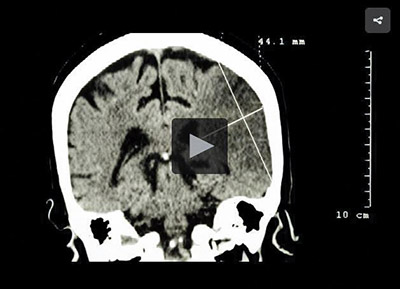
(Courtesy of Sheba Medical Center) The Chaim Sheba Medical Center at Tel HaShomer has extended the treatment protocol for stroke victims from eight hours to 24 hours. The hospital states that the new protocol not only allows doctors to treat more patients but also gives hope to stroke victims and their families.
Stroke victims of all ages, who previously had to endure a tragic fate if they were not evaluated and treated within eight hours of suffering the brain trauma, have been given a new lease on life thanks to the innovative efforts of Sheba Medical Center’s Dr. David Orion, director of the Acute Stroke & Neuro-Endovascular/ Neuro-Interventional Unit & Stroke Center.
Dr. Orion and his team have extended the evaluation and treatment protocol to 24 hours, making Sheba the first hospital in Israel to use this method, based on ongoing research into brain injuries such as strokes. “By extending the evaluation and treatment protocol to 24 hours, we are not only saving lives but we are enabling people who were thought to be incapable of being rehabilitated to function in different ways, from speech to physical activities to return to a relatively normal life,” revealed Dr. Orion.
“The key is to quickly evaluate the CT scans of the brain and see how much damage was done by the stroke and see if they are eligible for an angiogram that could eliminate the clot, etc,” he added. “We have seen remarkable results of reversing the damage and returning people to normal daily functions, including a 93-year-old woman whose speech and ability to walk fully returned. For many years, no hospital would even look at an elderly person once they had a stroke. The family would be told to prepare for the worst. We now have the opportunity to change that, which we are doing.”
This new protocol, which is based on five years of intensive research, is not a cure for everyone, Dr. Orion cautioned. “When a part of the brain dies in the aftermath of a stroke, there’s no way to revive it. But we can evaluate and find ways to work with different stroke victims if the damage is not severe,” he explained. “By enlarging the protocol from eight to 24 hours, we are also enlarging the hospital’s abilities to treat many more patients. Because of our successful results, we know that other hospitals in North America are beginning to institute the 24-hour protocol as well.”













